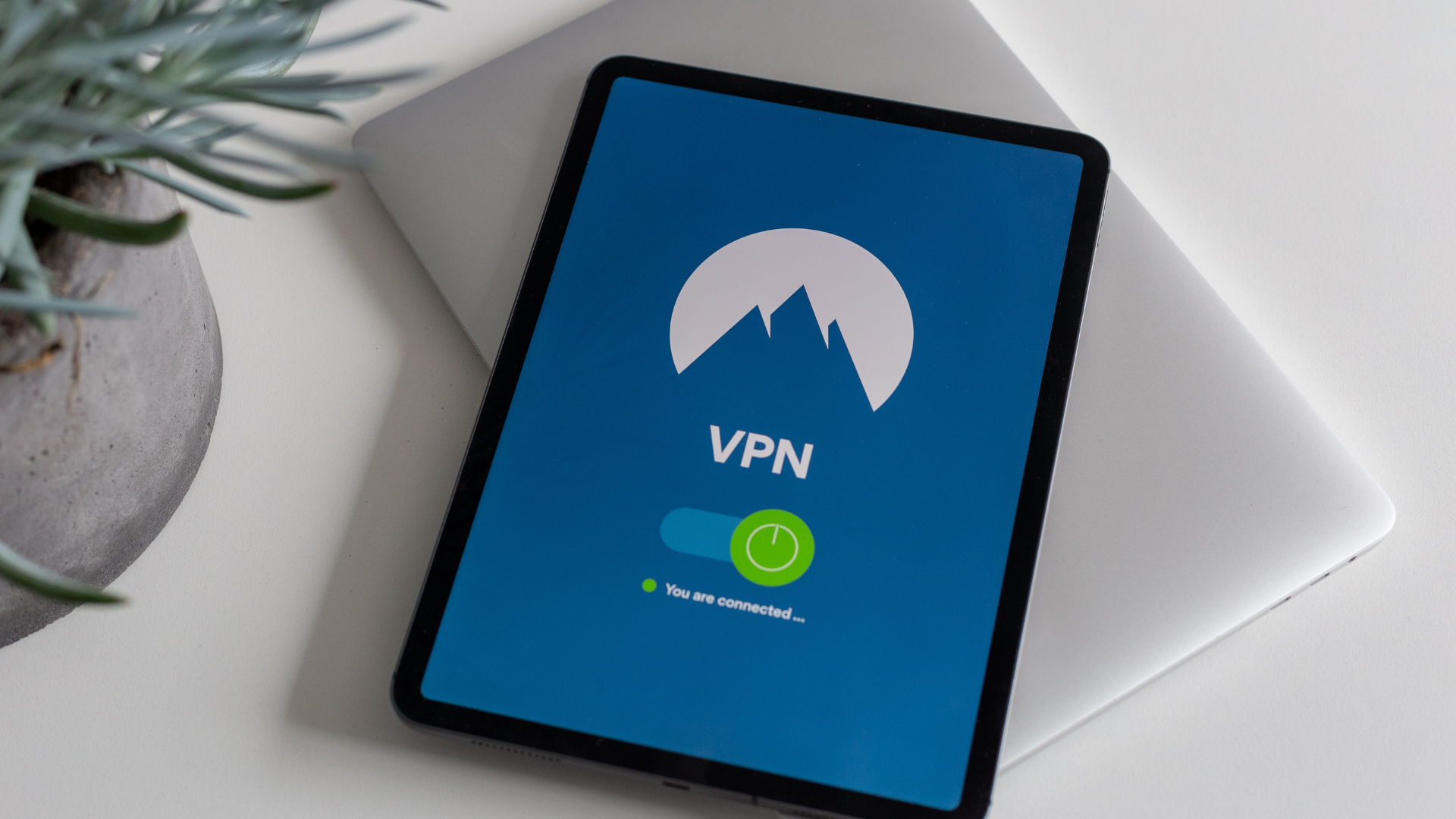

Setting up a VPN is a crucial step for anyone looking to enhance their online security and privacy. To establish a VPN, one needs to choose a reliable VPN provider, download the app, and follow the setup instructions provided. This straightforward process can protect personal data from prying eyes and ensure secure internet browsing.
Many individuals find themselves overwhelmed by the technical aspects of VPN installation. Yet, understanding the basic steps can simplify the experience significantly. Once the VPN is set up, users can enjoy unrestricted internet access while maintaining their anonymity online.
With the right guidance, anyone can navigate the setup process effectively. Knowing how to configure a VPN not only safeguards sensitive information but also unlocks a world of content that may be restricted in certain regions. This article will provide detailed instructions and tips for successfully setting up a VPN.
Understanding VPNs
A Virtual Private Network (VPN) creates a secure connection over the internet. It encrypts the user’s data and masks their IP address, enhancing privacy.
Key Functions of a VPN:
- Encryption: It scrambles data, making it unreadable to anyone intercepted.
- IP Masking: This hides the user’s actual location, providing anonymity online.
- Secure Access: VPNs allow users to connect to remote networks securely.
Common Uses of VPNs:
- Privacy Protection: VPNs prevent ISPs and third parties from tracking online activities.
- Access Restricted Content: Users can reach region-locked sites and services.
- Secure Remote Work: Employees can access company networks securely from anywhere.
Types of VPN Protocols:
| Protocol | Description |
| OpenVPN | Highly secure and configurable. |
| L2TP/IPsec | Offers strong encryption with a double layer. |
| IKEv2/IPsec | Known for speed and stability in mobile use |
| PPTP | An older protocol; is less secure but easy to set up. |
Understanding these aspects of VPNs aids users in making informed decisions about their online privacy and security needs.
Choosing the Right VPN Provider
Selecting an appropriate VPN provider is crucial for ensuring online security and maintaining privacy. Important factors include features like security protocols, server locations, connection speed, privacy policies, device compatibility, and customer support. Each element plays a significant role in the overall effectiveness of the VPN service.
Security Features
When evaluating VPN providers, security features are paramount. Look for strong encryption standards, such as 256-bit AES, which is widely considered to be highly secure. Providers should offer multiple security protocols, including OpenVPN, IKEv2, and WireGuard, allowing users to choose based on their needs.
Additionally, features like a no-logs policy, which ensures that users’ activity is not stored, are essential. It is also beneficial if the VPN supports features like a kill switch, which disconnects the internet if the VPN connection drops, preventing data leaks. Regular security audits and independent reviews can further validate a provider’s security claims.
Server Locations
The number and distribution of server locations affect the VPN’s usability and effectiveness. A diverse range of server locations allows users to bypass geo-restrictions, access content from different regions, and optimize connection speeds.
Users should check whether the VPN service offers local servers, as connecting to nearby servers typically improves performance. Furthermore, having servers in several countries increases options for users who frequently travel or require access to specific foreign content. This variety can also assist in balancing server loads, and enhancing speed and reliability across the network.
Speed and Performance
Connection speed is a critical aspect of any VPN. Users expect a service that maintains high speeds without significantly slowing down their internet experience. Many VPNs may reduce speeds due to encryption overhead, so it’s essential to choose one known for its performance optimization.
Look for independent speed tests and user reviews that report real-world experiences. Providers that offer performance-enhancing features like split tunneling can also improve speed by allowing users to route some traffic outside the VPN tunnel. Testing the VPN’s efficiency on various devices and connections can provide valuable insight.
Privacy Policies
A VPN’s privacy policy should clearly outline how user data is handled. Users must ensure that the provider does not collect, store, or share personal data. A transparent privacy policy is a strong indicator of a trustworthy service.
Moreover, users should investigate the jurisdiction under which the VPN operates. Countries with strict data retention laws may pose a risk, while those outside surveillance alliances (like Five Eyes) typically offer better privacy protections. A thorough understanding of the provider’s stand on data privacy is crucial for informed decision-making.
Device Compatibility
Device compatibility is vital for seamless VPN use. A good VPN should support multiple platforms, including Windows, macOS, Linux, iOS, and Android. This ensures that users can protect all their devices with a single subscription. For Apple users looking to enhance privacy without extra cost, exploring a free vpn for ios can be a practical starting point.
Moreover, some VPNs offer browser extensions and support for routers, enhancing usability across devices. Users should check installation limits or concurrent connections permitted per account to ensure adequate coverage for all their devices. Compatibility with specialized devices, such as smart TVs or game consoles, can also be a beneficial consideration.
Customer Support
Reliable customer support is essential when selecting a VPN provider. Users should seek out services that offer multiple support channels, including live chat, email, and phone support.
Comprehensive FAQ sections and user forums can enhance the support experience by providing quick answers to common issues. Additionally, responsiveness and knowledge of the support team can significantly impact user satisfaction. Testing the support services before committing to a provider can help assess their effectiveness.
Preparing for VPN Installation
Setting up a VPN requires specific preparations to ensure a smooth installation. Key factors include confirming system compatibility, setting up an account with a VPN provider, and understanding payment options.
System Requirements
Before initiating a VPN installation, reviewing system requirements is essential. Most VPNs support various operating systems such as Windows, macOS, Linux, Android, and iOS. It is crucial to ensure that the device meets the following common requirements:
- Operating System Version: Check for updates on your OS to ensure compatibility.
- Processor: At least a dual-core processor is recommended for optimal speed.
- RAM: A minimum of 2 GB RAM is advisable; more may be required for intensive use.
- Internet Connection: A stable and reasonably fast internet connection is necessary for effective VPN performance.
Conducting these checks can prevent issues during setup.
Account Setup
Creating an account with a chosen VPN provider involves several steps. The process generally includes:
- Choosing a VPN Service: Research options based on speed, security, and server locations.
- Registration: Provide an email address and create a secure password. Ensure the email used is active for account verification.
- Platform Compatibility: Make sure the VPN supports all devices intended for use, such as routers or smart TVs.
Some VPNs offer free trial periods, allowing users to evaluate services before committing.
Payment and Subscriptions
Understanding payment and subscription options is vital during VPN preparation. Most VPN services operate on various pricing models:
- Monthly Subscriptions: Offers flexibility but can be more expensive long-term.
- Annual or Biannual Plans: Generally provide better value for commitment.
- Free vs. Paid VPNs: While free options exist, they often come with limitations like data caps or fewer security features.
Before providing payment information, ensure that the provider has clear refund policies. Always look for reputable payment methods such as credit cards or PayPal to enhance transaction security.
Installing VPN Software
To set up a VPN, installing the right software is essential. This involves downloading the application, configuring the software to meet specific needs, and connecting to a VPN server.
Downloading the Application
First, choose a reputable VPN provider. Visit their official website to ensure the software is legitimate. Look for the download section tailored to your operating system, such as Windows, macOS, Android, or iOS. Click the download link to start the process. Depending on the provider, this may initiate an automatic download or redirect to an app store. For mobile devices, downloading from the respective app store is recommended for safety and ease. Once downloaded, locate the installation file on your device. This is typically found in the ‘Downloads’ folder or your mobile app library.
Software Configuration
After installation, open the VPN application. Users will often need to sign in with their account credentials. It’s important to have an active subscription to access all features. Next, navigate to the settings menu. Here, users can customize preferences such as connection protocols (e.g., OpenVPN, IKEv2), and enable features like a kill switch or split tunneling. Adjust these options based on how they intend to use the VPN. Most applications provide a simple interface for selecting server locations. Users may want to choose a server closer to their physical location for better speed.
Connecting to a VPN Server
With the configuration complete, users can connect to a VPN server. The application typically displays a list of available servers with important details such as location and load. Select a server based on needs: for general browsing, a nearby server is ideal. For accessing region-locked content, a server in the desired region is necessary.
Once a server is selected, click the connect button. The application will attempt to establish a secure tunnel. Users can usually monitor connection status and details, such as IP address changes. If successful, a notification will confirm the connection. At this stage, the user is protected, and internet traffic is routed through the VPN.
VPN Usage Tips
Using a VPN can enhance privacy, improve security, and expand access to online content. To maximize the benefits, users should consider several strategies.
Optimizing Connection Speeds
To achieve the best connection speeds, selecting the nearest server location is crucial. The shorter the distance, the lower the latency.
Other tips include:
- Choose Wired Connections: Wired connections are typically faster and more stable compared to Wi-Fi.
- Adjust Protocol Settings: Some VPNs offer multiple protocols. Testing different options, like OpenVPN or IKEv2, may provide better speeds.
- Limit Background Use: Closing unnecessary applications or devices that consume bandwidth can help improve speed.
Regularly checking internet speeds using tools like Speedtest can monitor performance before and after enabling the VPN.
Accessing Geo-Restricted Content
A VPN allows users to bypass geographic limitations for streaming services or websites. To access this content effectively:
- Select Appropriate Servers: For content specific to a region, connect to servers located in that region.
- Clear Cache and Cookies: Clearing the browser’s cache can help prevent location-related tracking.
- Test Streaming Services: Some services actively block VPNs. If a service isn’t working, try a different server.
Using a VPN not only enhances access but also allows for a more varied selection of available content across different platforms.
Ensuring Continuous Protection
Maintaining ongoing protection while using a VPN requires diligence. Key practices include:
- Enable Kill Switch: This feature disconnects the internet if the VPN connection drops, preventing data leaks.
- Keep Software Updated: Regular updates ensure security vulnerabilities are patched.
- Use Strong Passwords: Combining VPN usage with robust passwords for accounts adds an extra layer of security.
Reviewing VPN settings frequently ensures that protection remains active, adjusting configurations according to specific needs.
Troubleshooting Common VPN Issues
Issues can arise when using a VPN, affecting connectivity and performance. Knowing how to address these problems can enhance the user experience and ensure reliable service.
Connectivity Problems
Connectivity issues are among the most frequent VPN problems. Users may encounter situations where the VPN fails to connect. In such cases, checking the following can help:
- Internet Connection: Ensure the base internet connection is functioning. A simple browser test can confirm internet access.
- VPN Settings: Verify server address and protocol settings. Incorrect configurations can lead to connection failure.
- Firewall and Antivirus Settings: Sometimes, security software may block VPN traffic. Temporarily disabling these can determine if they are the cause.
- Reconnecting: Disconnecting and reconnecting can often resolve minor glitches.
If these steps do not resolve the issue, reinstalling the VPN application or contacting customer support may be necessary.
Slow Internet Speeds
Slow speeds can occur while connected to a VPN. Here are some strategies to consider for improving VPN performance:
- Choose a Different Server: Some servers may be overloaded. Switching to a less congested server can lead to better speeds.
- Change Protocols: Certain protocols can impact speed. For instance, switching from OpenVPN to IKEv2 might result in faster connections.
- Close Unused Applications: Background applications consuming bandwidth can slow down the VPN. Closing these can free up resources.
- Check for ISP Throttling: Some Internet Service Providers throttle VPN traffic. Running tests with and without the VPN can help identify if this is an issue.
Implementing these strategies may alleviate slow speeds while using a VPN.
VPN Blocks and Bans
Blocks and bans occur when websites or services restrict access to VPN users. Understanding how to navigate these barriers can help regain access:
- Use Different VPN Protocols: Switching protocols may help in bypassing restrictions. Some protocols are less detectable than others.
- Select an Obfuscated Server: Some VPN providers offer obfuscated servers specifically designed to evade detection by websites.
- Contact VPN Support: Customer support can provide insights into which servers are currently working best for accessing specific sites.
- Test with Different Locations: Changing the virtual location can sometimes allow access to blocked content.
These measures can assist users in overcoming restrictions placed by various online platforms.
Maintaining Your VPN
Effective maintenance is crucial to ensure a VPN operates optimally. Regular updates, adherence to security practices, and timely subscription renewals contribute to a reliable service.
Regular Software Updates
Keeping the VPN software up to date is essential for security and functionality. VPN providers frequently release updates that patch vulnerabilities, enhance performance, and introduce new features.
To facilitate updates:
- Enable Automatic Updates: Most VPNs offer this feature, allowing users to get the latest changes without manual intervention.
- Check for Updates Manually: Users should periodically verify that they are using the latest version, especially if automatic updates are not enabled.
In addition, updating the device’s operating system is equally important. Security fixes from the OS can impact VPN performance and security. Ignoring updates may expose vulnerabilities, making it easier for attackers to compromise the connection.
Security Best Practices
Incorporating security best practices is vital for maintaining VPN effectiveness. Users should be aware of potential risks and implement measures to mitigate them.
Consider the following actions:
- Use Strong Passwords: Create unique, complex passwords for the VPN account to reduce the risk of unauthorized access.
- Enable Two-Factor Authentication: This additional security layer can significantly enhance account protection.
- Regularly Review Security Settings: Users should familiarize themselves with available privacy settings in the VPN application and adjust them according to personal comfort levels.
Moreover, it is important to monitor for potential leaks. Users should periodically test for IP or DNS leaks to ensure the VPN is functioning as intended. Tools and websites exist for this purpose, helping verify that the VPN obscures the user’s real location.
Renewing VPN Subscriptions
Timely renewal of VPN subscriptions ensures uninterrupted service. Most providers offer various plans, so choosing a plan that fits usage needs is important.
Key points to consider when renewing:
- Check for Discounts: Many VPN services offer discounts for long-term commitments. Review options before renewing.
- Evaluate Service Quality: Assess whether the VPN is meeting expectations regarding speed, customer support, and privacy features before renewal.
Tracking subscription expiration dates is crucial. Users should set reminders to avoid lapses in service. Some VPNs may also provide notifications as the renewal date approaches. Keeping an eye on all these aspects ensures continued, reliable access to secured internet browsing.
